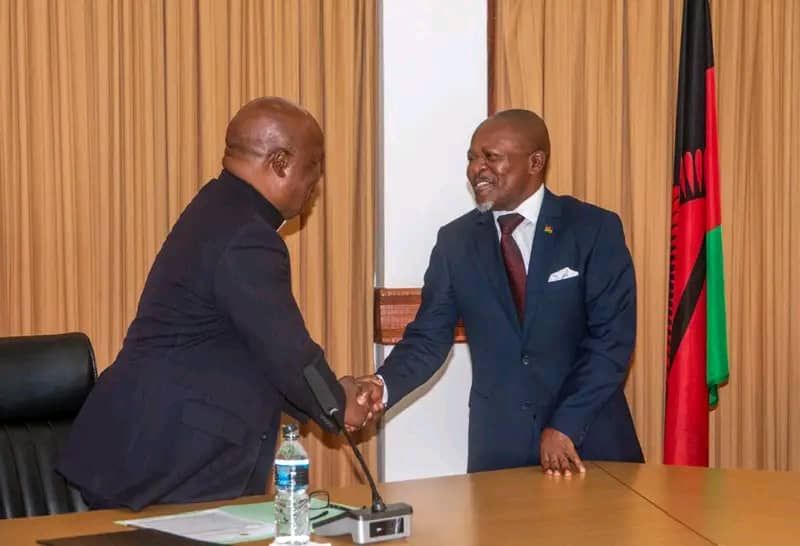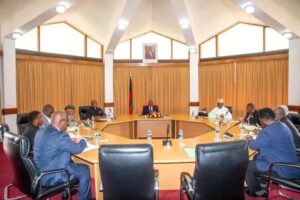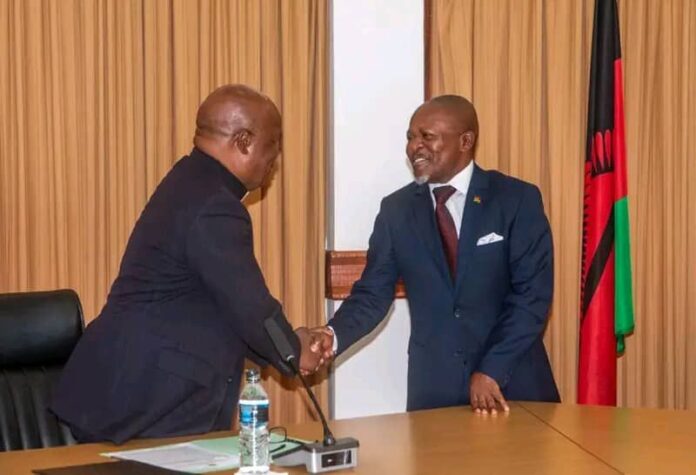By Burnett Munthali
Vice President Dr. Michael Usi is holding a crucial meeting with the quasi-religious body, the Public Affairs Committee (PAC), at Capital Hill in Lilongwe. The high-level discussions, which are taking place behind closed doors, are expected to center on pressing national issues that PAC deems critical to Malawi’s governance, economy, and social welfare.
PAC, led by its chairperson, Monsignor Patrick Thawale, has historically played a significant role in shaping Malawi’s political and socio-economic landscape. The organization is known for advocating good governance, transparency, and accountability, often engaging with government officials to push for policy changes and reforms. While the details of today’s meeting remain confidential, it is widely speculated that topics such as economic instability, governance challenges, and public service delivery are on the agenda.

Dr. Usi’s engagement with PAC comes at a time when Malawi is grappling with multiple socio-economic challenges, including high inflation, persistent fuel shortages, and governance concerns. As Vice President, his role in addressing these issues is critical, and PAC’s involvement suggests that civil society and religious leaders are keen on ensuring that government decisions reflect the interests and needs of the people.
Following his meeting with PAC, Dr. Usi is scheduled to meet stakeholders in the fuel sector to discuss the ongoing fuel supply crisis that has affected businesses and daily life across the country. The meeting is expected to bring together key players in the petroleum industry, including representatives from the Malawi Energy Regulatory Authority (MERA), fuel importers, and transporters.
Malawi has faced recurrent fuel shortages in recent months, attributed to foreign exchange constraints, logistical challenges, and supply chain disruptions. The scarcity of fuel has led to long queues at filling stations, increased transportation costs, and disruptions in economic activities. The Vice President’s decision to engage directly with fuel sector stakeholders signals the government’s commitment to finding sustainable solutions to the crisis.
As Malawians await the outcomes of these high-level meetings, expectations are high that Dr. Usi’s discussions with PAC and fuel sector players will yield concrete solutions to the nation’s pressing challenges. His leadership in these engagements could prove crucial in addressing public concerns and restoring confidence in the government’s ability to manage economic and governance issues effectively.
It remains to be seen whether today’s deliberations will lead to immediate policy interventions or long-term strategies to stabilize the country’s socio-economic situation. However, the Vice President’s proactive approach in engaging key stakeholders underscores the administration’s recognition of the urgent need to tackle Malawi’s growing challenges head-on.




